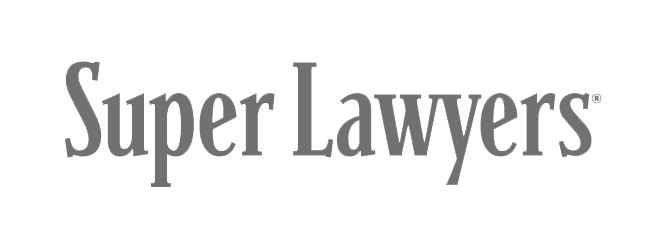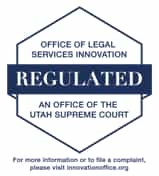Utah Car Accident Lawyers
Helping Auto Accident Victims Across Utah
Car accidents are a leading cause of death and injury in the United States. Unfortunately, most drivers will eventually be involved in a car accident. It can be difficult to navigate the insurance claims process to secure fair compensation for your injuries, but you can turn to the Utah car accident lawyers at Pearson Butler for help during this difficult time.
Why Hire an Attorney to Handle Your Car Accident Claim?
An experienced attorney can deal with the insurance company so you don’t have to. When you have a lawyer representing your interests after a car accident, you can focus on recovering from your injuries while the dedicated attorneys at Pearson Butler file all paperwork and negotiate with the insurance companies on your behalf.
After a car accident, there are many things to consider:
- How will my medical bills get paid?
- Can I get compensated for my lost wages?
- Should I go to the doctor?
- How much is my auto accident claim worth?
- What if I had a pre-existing injury?
Our Utah car accident attorneys can help you navigate these complicated questions and ensure the insurance companies don’t take advantage of you. Call 385-444-2102 for a FREE review.
Understanding Utah's Car Accident Laws
In Utah, car accident laws are designed to govern the process of determining liability, handling insurance claims, and seeking compensation for injuries and damages. Utah operates under a no-fault insurance system, meaning that drivers are required to carry Personal Injury Protection (PIP) insurance. This type of coverage allows individuals to file claims with their own insurance company to cover medical expenses, lost wages, and other out-of-pocket costs, regardless of who was at fault for the accident.
Utah is a no-fault insurance state so, in the event of an accident, you will recover compensation for medical bills and property damage from your own insurer. However, the ability to sue another driver is limited unless certain thresholds are met, such as incurring medical expenses exceeding $3,000 or suffering from permanent disability, disfigurement, or dismemberment.
Utah's fault-based component comes into play when these thresholds are met, allowing victims to pursue additional compensation from the at-fault party. In these cases, the principle of comparative negligence is applied. Comparative negligence means that if an injured party is partially at fault for the accident, their compensation will be reduced by their percentage of fault.
For instance, if a driver is found to be 20% responsible for an accident, their compensation will be reduced by 20%. If the injured party is found to be 50% or more at fault, they are barred from recovering any damages from the other party.
The statute of limitations for filing a personal injury lawsuit in Utah is four years from the date of the accident. This time frame is crucial for preserving the right to seek compensation through the court system. For property damage claims, the statute of limitations is three years. It is essential for accident victims to be aware of these deadlines to ensure they do not forfeit their right to legal recourse.
In the aftermath of a car accident, Utah drivers are required to report the incident to law enforcement if it results in injury, death, or property damage exceeding $2,500. This report can be vital for insurance claims and legal proceedings. Failure to report such accidents can result in penalties and complications in the claims process.
Common Causes of Car Accidents
Car accidents can result from various factors, often involving human error, mechanical failure, or environmental conditions. Here are some of the most frequent causes of car accidents:
- Distracted Driving: Distracted driving is a leading cause of car accidents. This includes any activity that diverts attention from driving, such as using a cell phone (texting, calling, or using apps), eating or drinking, talking to passengers, adjusting the radio or GPS.
- Speeding: Driving above the speed limit or too fast for road conditions is a major factor in many accidents. Speeding reduces a driver’s ability to react to sudden changes in the road and increases the severity of accidents.
- Drunk Driving: Driving under the influence of alcohol or drugs impairs judgment, coordination, and reaction times, making it a significant cause of accidents. Even small amounts of alcohol can affect a driver’s ability to operate a vehicle safely.
- Reckless Driving: Reckless driving involves aggressive behaviors such as tailgating, changing lanes abruptly, ignoring traffic signals, street racing
- Weather Conditions: Adverse weather conditions like rain, snow, fog, or ice can make roads slippery and reduce visibility, leading to accidents. Drivers must adjust their speed and driving style to accommodate these conditions.
- Running Red Lights and Stop Signs: Ignoring traffic signals is a common cause of accidents at intersections. Running a red light or stop sign can result in high-speed collisions, often with severe consequences.
- Night Driving: Driving at night increases the risk of accidents due to reduced visibility and the potential for encountering fatigued or impaired drivers. Proper use of headlights and staying alert is crucial for safe night driving.
- Teenage Drivers: Inexperienced and young drivers are more likely to be involved in accidents due to lack of experience and potentially risky behaviors such as speeding or distracted driving.
- Mechanical Failures: Vehicle malfunctions, such as brake failures, tire blowouts, or engine problems, can lead to accidents. Regular maintenance and prompt repairs are essential to prevent such issues.
- Road Conditions: Poorly maintained roads, potholes, construction zones, and lack of proper signage can contribute to accidents. Drivers should be cautious and adapt to changing road conditions.
- Fatigue: Drowsy driving can be as dangerous as drunk driving. Fatigued drivers have slower reaction times, impaired judgment, and are at risk of falling asleep at the wheel.
- Tailgating: Following another vehicle too closely reduces the time available to react if the vehicle in front suddenly stops, leading to rear-end collisions.
- Improper Turns: Failing to signal, making illegal turns, or misjudging the speed of oncoming traffic can result in accidents, especially at intersections.
- Driving Under the Influence of Drugs: Besides alcohol, driving under the influence of prescription medications, recreational drugs, or over-the-counter drugs that cause drowsiness or impair motor skills can lead to accidents.
- Overloaded Vehicles: Carrying too much weight or improperly secured cargo can affect a vehicle’s handling and stability, leading to accidents.
What to Do After a Motor Vehicle Accident
It’s important to keep in mind that insurance companies are notorious for denying accident claims. Their main objective is protecting their bottom line—not paying you the compensation you deserve.
Take the following steps after an accident so your insurer has no reason to deny your claim:
- Check for injuries and make sure everyone is ok. Call an ambulance if needed.
- Stay at the scene. You can be charged with a crime if you leave the scene, especially is someone is injured.
- Call the police, even if it is a minor accident. Having a police report is helpful to determine liability.
- Tell the truth and don't apologize. Everything you say is probably going to be written down in a police report. If it wasn’t your fault, then don’t say it was and don’t apologize. Just give an accurate and detailed witness statement. It will likely be used later to help determine liability.
- Take pictures. If possible to do safely, take pictures of the accident before cars are moved. However, it is important to stay safe and move the vehicles to the side of the road. If you weren’t able before, take pictures once the cars are moved.
- Exchange information with all other parties. It is important to know who all was involved. Don’t rely on the police to preserve the information. They are usually pretty good, but mistakes do happen. Write down the names, contact information, and license plates of all parties involved, including witnesses.
- Seek medical attention; it won’t cost you anything initially. All insurance policies have PIP, which covers a minimum of $3,000 of medical care after an accident. Many people don’t seek care because they are worried about paying for it. For the purposes of your case, it is important to document your injuries as well. Seek medical care from a certified injury professional, whom we can recommend if you'd like.
- Contact your insurance company. Report the claim to your insurance company at your earliest convenience. Many people think if they were not at fault they don’t need to file a claim. That is not true; you do need to file a claim. Utah law states that your premiums will not go up if you file a claim for which you are not at fault.
- Seek legal advice. Almost all car accident attorneys offer free consultations. Seek advice early on. We can steer you away from common pitfalls and tell you if you do or do not have a case. Find a qualified attorney who focuses on personal injury, not your neighbor or church member. Personal injury law is just as specialized and complicated as any other area of law. Insurance companies will try to convince you not to seek an attorney, because they don’t want you to have one. Protect your own rights.
- Do not sign things without reading them. Many times, insurance companies try to get you to sign things that are prejudicial to you. For example, sometimes they slip in a full release of your bodily injury claims in the property damage papers. Make sure you are reading everything or hire an attorney before you have to sign anything.
- Keep a journal and accurate records. Lots of things will happen all at once, and you think you’ll remember everything later, but over time you will start to forget things. Keep accurate records and notes in case you need to recall details about the accident or your injuries later.
Talk to a Car Accident Lawyer in Utah
If you are involved in a car accident, you may be eligible for compensation for your injuries, loss of income, medical expenses, and more. When you call a car accident attorney at Pearson Butler to assist you after your accident, you are taking a proactive approach to protecting your future.
The insurance companies are not looking out for you. The auto accident lawyers at Pearson Butler can stand up for your rights against insurance companies and wrongdoers.
Contact us today at 385-444-2102 for your free, no-obligation consultation.
We serve car accident victims throughout Utah, including those in American Fork, Provo, Tooele, Eagle Mountain, Farmington, Herriman, Midvale, West Valley City, Alpine, Park City, Riverton, Sandy, and all surrounding areas.





.jpg)








